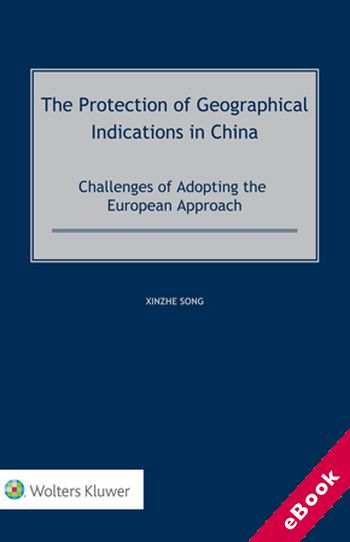
The device(s) you use to access the eBook content must be authorized with an Adobe ID before you download the product otherwise it will fail to register correctly.
For further information see https://www.wildy.com/ebook-formats
Once the order is confirmed an automated e-mail will be sent to you to allow you to download the eBook.
All eBooks are supplied firm sale and cannot be returned. If you believe there is a fault with your eBook then contact us on ebooks@wildy.com and we will help in resolving the issue. This does not affect your statutory rights.
The Protection of Geographical Indications in China is a unique book that takes into consideration China’s compromised embrace of the Geographical Indication (GI) concept and unravels how the Chinese case brings to prominence fundamental issues relating to the functional dissimilarity between trademarks and GIs, the treatment of the terroir concept, the role of GIs in rural development, and the challenges of adopting the French and European model in other countries, especially in East Asia.
There has been an ongoing struggle regarding the role in the global marketplace of certain agricultural or handcrafted products of specific geographical origin: whether they should come under trademark law – as preferred by common law countries like the United States – or under the GI system developed in France and promoted by the European Union (EU).
What’s in this book:
Furnishing detailed information on how GIs are registered, protected, and managed in China, France, and the EU, the book sheds light on the following pragmatic analysis:
How this will help you:
This remarkable book provides a comprehensive reference on legal tools available for policymakers, legal practitioners, researchers, and local producers concerned with GI or trademark issues in China, France, or the EU. It will be welcomed by corporate lawyers filing international registration applications and taking legal action. It will also prove to be invaluable to officials in several countries that are considering developing or improving systems to elevate the value of terroir products, and to academics interested in intellectual property law, trademark law, agriculture policy, GI legislation, or World Trade Organization rules.